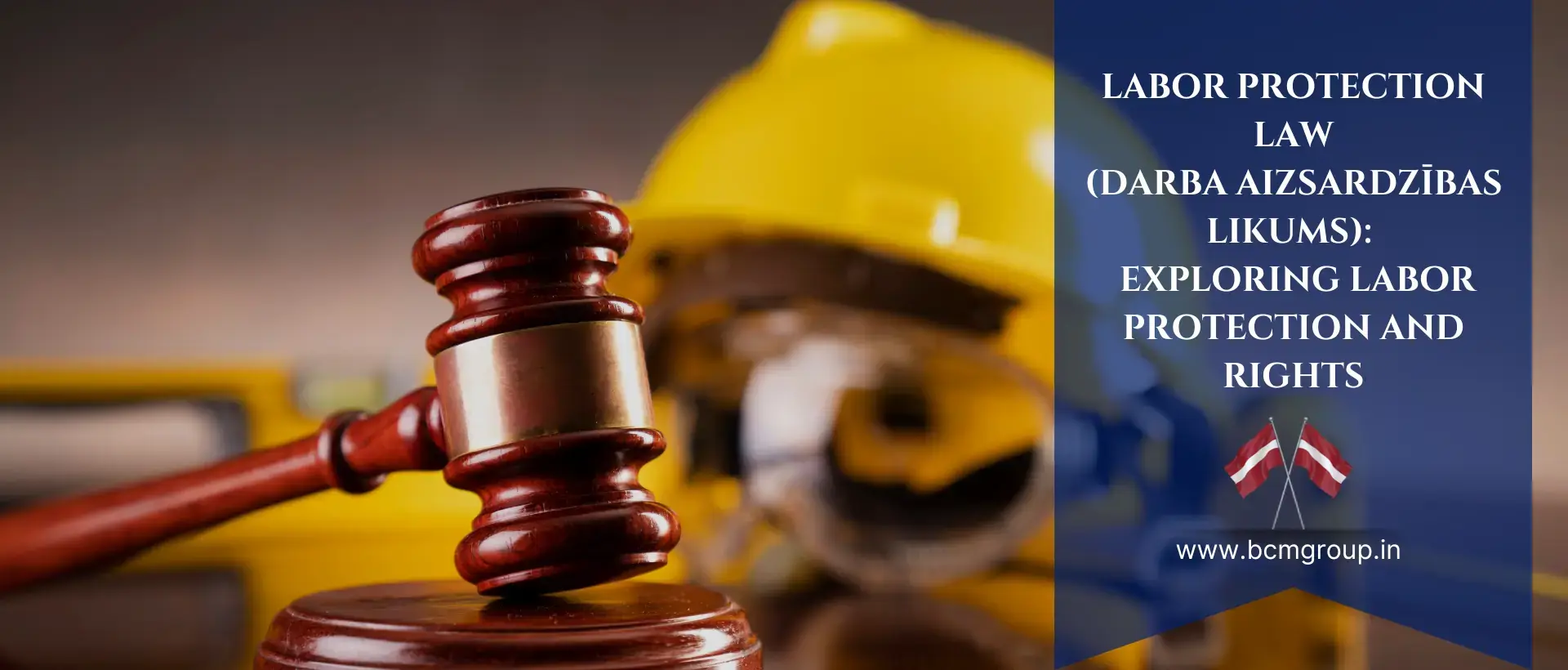
Darba aizsardzības likums nodrošina līdzsvaru starp darba devēja rīcības brīvību un darbinieku tiesisko aizsardzību. Tā aizsargā vienlīdzīgus darba apstākļus, piemēram, drošas darbavietas, piemērotas algas un pārredzamus darba līgumus. Tā aizsargā vienlīdzīgus darba apstākļus, piemēram, drošas darbavietas, piemērotu atalgojumu un pārredzamus darba līgumus. Tas ietver pienācīgus aizsardzības pasākumus pret darba risku, īpašu uzmanību pievēršot veselībai un drošībai.Turklāt likums regulē darba strīdu izskatīšanu un veicina apmaksāta atvaļinājuma piešķiršanu, kā arī nodrošina vienlīdzīgas atalgojuma iespējas. Pievēršot uzmanību attālinātajam darbam, videi draudzīgām darbavietām un “gig” ekonomikai, pašreizējie tiesību akti ir uzlabojuši darba ņēmēju aizsardzību. Saskaņā ar ES pamatnostādnēm Latvijas darba likumi turpina attīstīties, lai gan darba devējiem, gan darba ņēmējiem nodrošinātu drošu, vienlīdzīgu un veselīgu darba tirgu.
Darba aizsardzības likums ir izstrādāti, lai nodrošinātu cieņu un vienlīdzīgu attieksmi darba vietā. Tas ir dinamisks noteikumu kopums, kas nosaka attiecības starp organizācijām un to darbiniekiem. Uzskatiet, ka tas ir sociālais līgums, kas nosaka algas un darba apstākļus. Iesaistot darbiniekus un radot vienlīdzīgus darba apstākļus.
Mērķis ir uzlabot mazāk atalgotu darbinieku finansiālo stāvokli un dzīves kvalitāti No 2025. gada 1. janvāra valdība ir pieņēmusi labu lēmumu palielināt minimālo algu no 700 līdz 740 eiro mēnesī.
2024. gada 8. jūnijā valdība veica izmaiņas jaunajos likumos, iekļaujot tajos prasības ārvalstu darba ņēmēju pieņemšanai darbā. organizācijām būs nepieciešams iegūt Valsts nodarbinātības biroja apstiprinājumu. Pirms uzaicināt ārvalstu darbiniekus, dodiet priekšroku vietējiem iedzīvotājiem.
Valdība ir nolēmusi piešķirt 510 eiro mēnesī, kas palīdzēs vienkāršot nodokļu sistēmu, un tas būs izdevīgi arī darba ņēmējiem.
Latvija atbalstīja Regulu 2023/970, saskaņā ar kuru valdība ir nolēmusi maksāt vienādu atalgojumu visiem neatkarīgi no tā, vai tie ir vīrieši vai sievietes.
Nesen Latvijā tika izveidots “Zaļais koridors” dažādu nozaru darba devējiem, lai mazinātu administratīvo procesu problēmas. Pateicoties šim procesam, ārvalstu darba devēju pieņemšana darbā ir kļuvusi vienkāršāka.
Nodrošināt darbinieku drošību viņu darba vietās un pasargāt viņus no apdraudējumiem.
Latvijai cenšoties kļūt zaļākai, ar vidi saistītām darbavietām ir liela ietekme uz tās ekonomiku un sabiedrību. Arvien vairāk tādu jomu kā atkritumu apsaimniekošana, tīra enerģija, zaļā būvniecība un videi draudzīga lauksaimniecība rada jaunas darba iespējas.
Darba ņēmēju tiesībām, drošībai un vienlīdzīgām algām netika pievērsta liela uzmanība. Valsts kontrolēja nodarbinātību un vairāk rūpējās par ražošanu nekā par strādnieku pamatvajadzībām.
Pēc Darba kodeksa apstiprināšanas 1993. gadā Latvija sāka mainīt savus darba likumus.
Līdz ar pievienošanos ES, kas stājās spēkā 2004. gadā, Latvijā tika veiktas būtiskas izmaiņas darba likumdošanā, kas ļāva Latvijai iekļauties ES. Jaunākais darba tiesību aktu kopums ietvēra minimālās algas politiku, bezalgas bērna kopšanas atvaļinājuma politiku, stingrākus noteikumus attiecībā uz veselības aizsardzību un drošību, kā arī aizliegumu diskriminēt nodarbinātību.
Līdz ar tirdzniecības veicināšanu, ko radījušas “zaļās” darbavietas, kā arī valsts minimālās algas noteikšanu 740 eiro apmērā un spēkā esošajiem tiesību aktiem par vienlīdzīgu atalgojumu visiem kandidātiem, Latvijā notikušas vairākas būtiskas pārmaiņas. Sieviešu politika mainīja imigrācijas politiku, lai radītu ilgtspējīgāku darbaspēku, un abas bija atkarīgas no attālināta darba.
Secinājums: Latvija pēdējos gados spēja mainīt un atcelt PSRS ievērojamos darba ieviesa noteikumus, kas vērsti uz efektīvu darba likumdošanu, kas ļāva pārvarēt korporatīvo monopolu. Minimālās algas likumu maiņa un zaļo darbavietu iniciatīvu ieviešana ir tikai dažas no nesenajām reformām, ar kurām Latvija var lepoties.
Štābs
409, 4. stāvs, Amanora Chambers, Amanora Mall, netālu no Magarpatta City, Hadapsar, Pune – 411028
BCM Group Global Manpower SRL, Romania
Darba meklētājiem
Uzņēmumiem
Uzņēmumiem

Reģistrēts zem Ministry of External Affairs
License No. MUMBAI/PARTNERSHIP/5493853/2021
© 2024–2025 bcmgroup. Reģistrēts zem.
Šo vietni aizsargā reCAPTCHA, un uz to attiecas Google konfidencialitātes politika un pakalpojumu sniegšanas noteikumi.